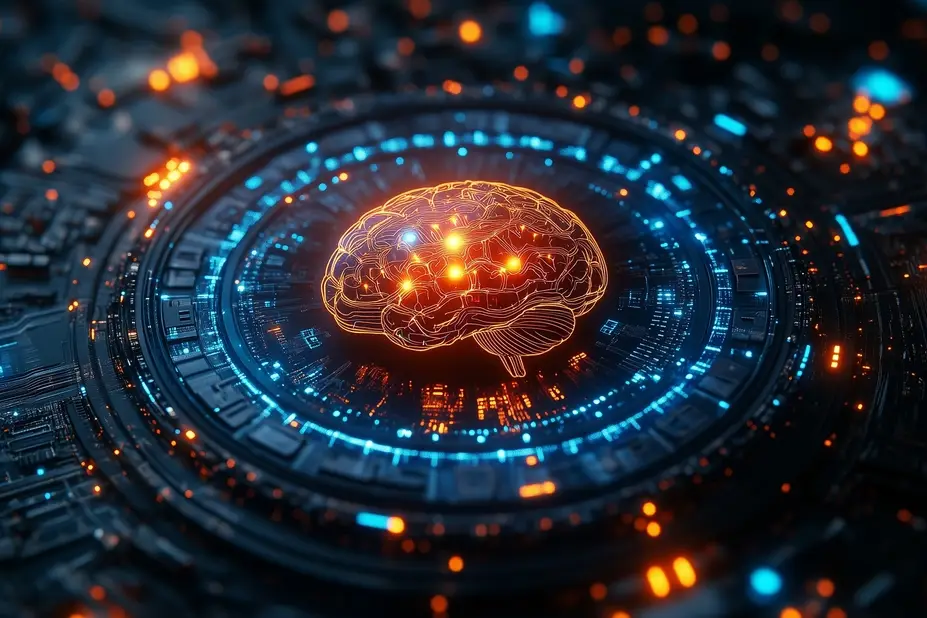Prediction markets were created to harness the collective knowledge and insights of large groups of people, serving as a way to gauge sentiment and forecast potential outcomes and probabilities of uncertain future events. Given the human-centered nature of these markets, the use of artificial intelligence (AI) in their operation could be seen as an ironic, but inevitable move.
The AI industry (market size) is expected to grow from over $150.9 billion in 2025 to reach $3.215 trillion in 2033, according to data published by Cognitive Market Research. With over 40% of global businesses actively experimenting or piloting AI tools, the industry’s broader adoption remains inevitable.
Mainstream prediction market platforms Polymarket and Kalshi are already experimenting with the use of AI agents, with both having adopted separate partnerships with Elon Musk’s X chatbot Grok.
As AI tools continue to evolve, their role in prediction markets could be shifting from mere support to a potentially transformative force. The big question is: Will AI enhance the accuracy and efficiency of these markets, or could it fundamentally change how they function?
The role of AI in shaping the future of prediction markets
A 2012 MIT study found that hybrid prediction market models, where both humans and AI agents participated in betting, produced more accurate predictions than market models run by only one or the other. Adrian Lai, the founder of Supafund and Somnia’s Dreamathon partner, told Prediction News that with both industries rapidly advancing, a hybrid prediction market model could be inevitable.
Supafund is currently testing whether agentic or hybrid prediction markets can successfully forecast early-stage project success. In such niche markets, human-only participation is challenging due to the market’s low liquidity, which brings a clear use case for AI agents that can synthesize multiple data sources and trade in micro-markets.
According to Lai, Olas-powered agents now handle 35% of all transactions on Gnosis Chain (Ethereum Layer 2 blockchain), reporting positive success rates.
However, the use of AI in prediction markets goes beyond niche industries. AI systems boast the ability to process vast amounts of data, use large language models and specialized prediction models, as well as operate at much lower costs than human alternatives.
For example, Polymarket’s official open-source framework, Polymarket Agents, allows developers to build agents that help analyze data and trade autonomously without any human involvement.
Olas’ founder and the CEO of Valory, David Minarsch, told Prediction News that Olas Predict has executed millions of trades in prediction markets with an average accuracy of 51%.
“AI effectiveness varies considerably across domains. Olas Predict focuses on news-based prediction markets, but in price prediction contexts, success depends heavily on market structure. For digital assets with well-structured trading environments (high volume with good liquidity), prices often reflect the bulk of available information, so it’s unlikely AI can tease out additional insights. However, for niche assets and verticals with less liquid trading, AI-driven prediction systems can serve as an interesting complement to traditional pricing mechanisms.”
Can AI run prediction markets? Experts divided
While experts have noted that AI agents can aid prediction markets, their views remain divided on whether they can fully run the platforms with no human interaction. According to Dylan Dewdney, the co-founder and CEO of Kuvi.ai:
“The entire point of prediction markets is to source human conviction and aggregate it into prices. If you replace that with agents, you end up with feedback loops of machine inference rather than grounded human belief…At best, AI can act as a co-judge or referee, helping filter noise, surface anomalies, or provide second-opinion analysis. But decentralization depends on human participants holding and exercising belief. AI-native governance without human anchors risks undermining that very principle.”
Olas’ Minarsch provided a contrasting opinion, highlighting that the ability of agents to collect information efficiently at significantly lower costs than human participation could eventually make possible prediction markets entirely run by AI.
“Long-tail prediction markets, where human involvement isn’t economically viable, could become important information sources through AI-only participation.”
Joe Z, the co-founder of DeAgentAI, added that AI agents are already very much involved with prediction markets.
“Not fully autonomous yet, but the workflows, market making, liquidity balancing, even arbitration, AI can handle that. The question is more about how much trust you’re willing to hand over. My view is that AI running prediction markets is inevitable; it’s just a matter of governance guardrails.”

























